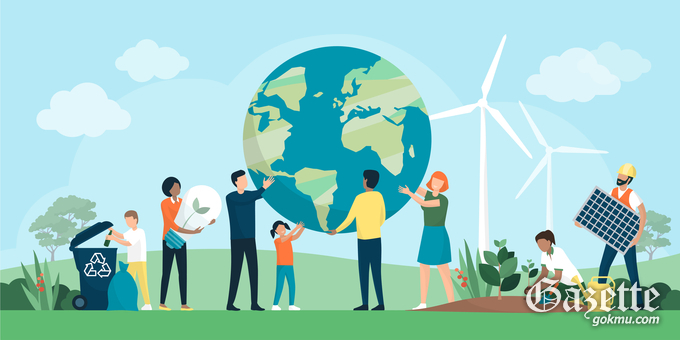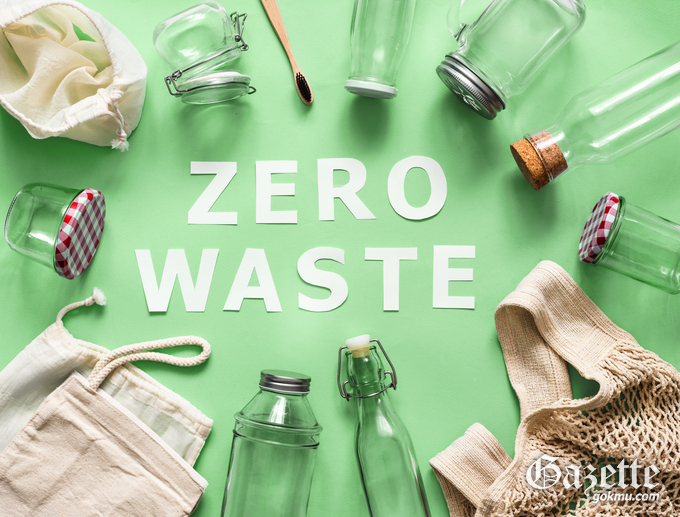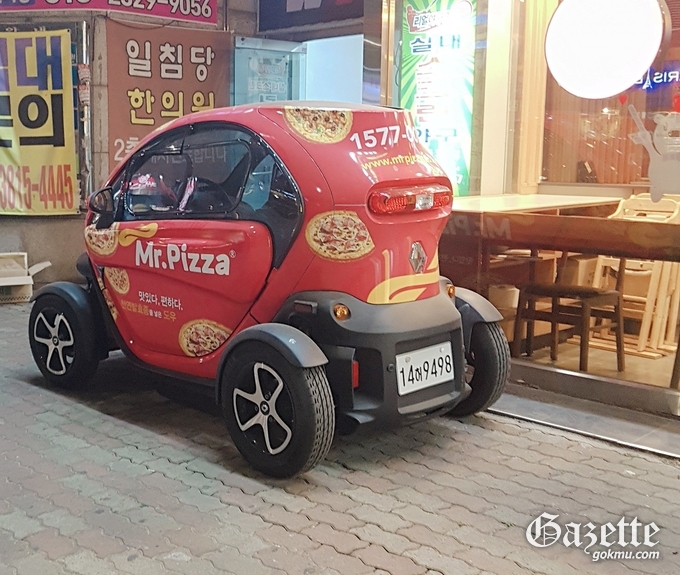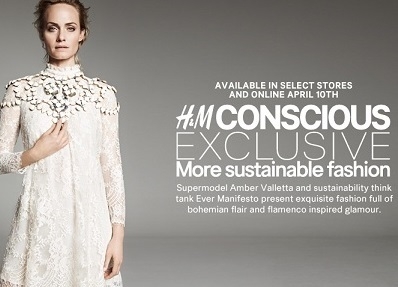
After the EU announced a recycle strategy for plastic containers, the world is seriously concerned about waste and environmental problems. The environmental problems are fundamentally related to the consumerism society. Consumerism can be defined in a sentence: “I consume. Therefore, I exist.” Consumption is essential in our lives but causes a lot of waste with as much as we consume. Because resources are limited, we should reduce waste for future generations.
Reducing waste is important, but eco-friendly consumption is a fundamental way to improve the environment. Every year the world produces 330 million tons of plastic, and the amount of discarded plastic is estimated to be about 12 billion tons by 2050. The plastic recycling rate is only about 9%, and the remaining 79% is discarded as waste. This waste has harmful effects on the human body and increases the frequency of weather disasters. Because of this, Korea has started to reduce the use of plastic cups in cafes since 2018. This is an example of eco-friendly consumption.
Now, eco-friendly consumption is not a decision but a must. In Korea, the era of eco-friendly has gone and the era of ‘eco-essential’ has come. Eco-essential means reducing waste produced in daily life and products are recycled by using methods that protect the environment. As the importance of environmental protection grows, the Korean government and companies further reinforce environmental policies and management, and consumers further increase the demand for eco-friendly products. Now, the era of eco-essential has come, which includes a new ‘Zero Waste’ trend, new transportation and new fashion.
# Zero Waste

Among various eco-essential movements, there is zero waste. Zero waste is a movement to protect the environment by reducing waste to nothing. Some people follow this trend by reducing, saving and recycling and practice them unlike people who think it’s cool to take care of their appearance and spend.
Here are the behavior rules, or 5 Rs, for reducing waste to zero.
1. REFUSE what you don’t need!
2. REDUCE what you do need!
3. REUSE by using what you have!
4. RECYCLE what you can!
5. ROT the rest
We can use a shopping basket instead of a plastic bag, a reusable acrylic straw instead of a disposable straw and replace the 4.7 billion plastic toothbrushes that are thrown away every year with bamboo toothbrushes. The zero waste movement is promoted through Youtube and Instagram hash tags. If you search #zerowaste, you can easily find posts that share their eco-friendly lifestyles. They tell you how to use old products as decorations and sell products made with recyclable, recyled or eco-friendly materials.
While consumers are changing their lifestyles for the environment, governments and companies try to reinforce their social role for the environment. For example, the Korean government prohibits customers from using take out cups for use in coffee shops. With this in mind, Starbucks replaced the plastic straws that it had previously provided with paper straws and the material of the muddler was also changed to wood. Lotte hotels also participated in the zero waste movement. They planned to change disposable forks and knives into biodegradable products and bathroom amenities into eco-friendly products made from natural materials.

Zero waste may be a small change in people’s lifestyle, but most people are realizing the seriousness of environmental pollution and the necessity of waste reduction. As the number of people who are trying to do this is gradually increasing, each industry’s efforts to reduce waste are also beginning. The Ministry of Environment is in the process of making regulations to reduce or eliminate the use of disposable envelopes and cups and over-packaging. These small movements will have a big effect on the environment.
# Personal Mobility Vehicles

Among the main causes of fine dust emitted in Korea, automobiles are one of the most significant reasons. However in Korea, the number of registered vehicles has risen 3.1% and the mileage driven has increased 2.3% compared to 2018, according to the Korea Transportation Safety Authority. Also more people are buying diesel cars because of the cheaper fuel, but these cars emit large amounts of nitrogen dioxide, which is also bad for the environment. With these investigations we can see that automobiles are one of the major factors of environmental destruction. However, they are so common and necessary to our lives that we can’t easily realize this truth.
Because of this, many people and the motor industry are now getting into ‘personal mobility vehicles’ which means one- or two-person electric vehicles. This includes electric unicycles, electric kickboards, electric bicycles and subcompact electric cars. Personal mobility products are easy to drive and carry and they also cost less. For these reasons, interest in personal mobility vehicles is getting bigger and new products are being designed and produced these days, all over the world. According to Fuji Research Institute Corporation, the global business of personal mobility vehicles will develop up to 100 million vehicles by 2020.
However, there are still no appropriate policies for personal mobility vehicle users in Korea. According to current Korean laws, some personal mobility vehicles are banned from use on sidewalks, in parks and even on some roads with other cars. Unlike Korea, Germany allows personal mobility vehicle drivers on the roads under some conditions and Japan has special districts for them and allows them to be used in most parks.
In cities, there are so many cars. As a result, there are problems like not enough parking spaces and traffic jams as well as pollution. Furthermore, as the number of single people or couples grows, personal mobility vehicles can be suitable for them to save money and energy. Therefore, the government should implement good policies so that consumers become interested in personal mobility vehicles as soon as possible, and drivers can use them to help reduce pollution.
# Conscious Fashion

In the world of fashion, there is also an environmental movement. As the fashion trends rapidly change, the number of clothes thrown out and wasted is increasing and some of the discarded clothes become an environmental problem by being buried or burned off. Because of this, a new “conscious fashion” trend has become popular. This trend is eco-friendly and morally aware in designing, producing and packaging of clothes.
There are two main types of conscious fashion. The first is ‘eco-fashion’, which means making clothes with environmentally friendly materials. Instead of using synthetic textiles, some fashion brands are using eco-friendly textiles or dying methods that use the least amount of water, so they keep developing new fabrics. The second type is ‘recycling of secondhand clothes’. Used clothes from consumers, reusable plastic waste or cloth remnants can be used to make new apparel. One typical example is the apparel brand, H&M that is carrying out a campaign of collecting clothes to recycle or renew.
Many people said they are willing to buy conscious fashion items. On the other hand, some people still think negatively about this concept, because most conscious fashion items are more expensive than other normal clothes. Therefore, they might think these new clothes are made of trash and cannot understand why they have to pay more. However, these clothes are usually made with more complicated and numerous processes, so they can be more expensive now. However, if the recycling system becomes more extensive and more brands and factories start to use it, the prices will be much more reasonable.
These three big keywords, ‘zero waste’, ‘personal mobility vehicles’ and ‘conscious fashion’, are showing how many people are interested in saving the Earth. Having some small habits and conscious consumption as well as donating money or volunteering to improve the environment can lengthen our planet’s life. If you’ve forgotten how to save the Earth for a while, you can practice some small behaviors we recommended earlier.








